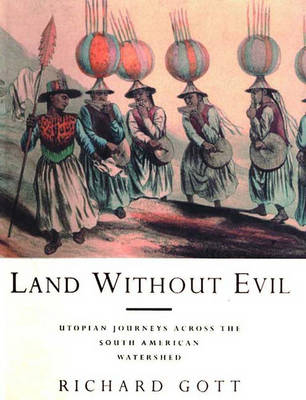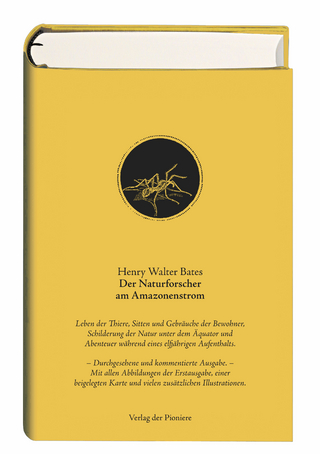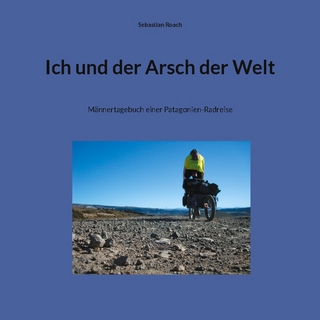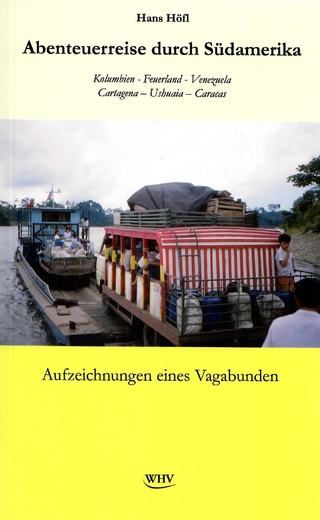
Land Without Evil
Utopian Journeys Across the South American Watershed
Seiten
1993
Verso Books (Verlag)
978-0-86091-398-6 (ISBN)
Verso Books (Verlag)
978-0-86091-398-6 (ISBN)
- Titel ist leider vergriffen;
keine Neuauflage - Artikel merken
Describes a journey through the heart of South America across the swampland that forms the watershed between the River Plate and the River Amazon. The text resurrects the historical events in the area over 500 years, the lives of people who have lived there, and visitors who made the same journey.
All too often, travel writers plunge into seemingly obscure parts of the globe with little knowledge of where they are, whom they are among, or what has happened there in the past. In this trend-breaking anti travel book, Richard Gott describes his own journey through the heart of South America, across the swampland that forms the watershed between the River Plate and the River Amazon. But the story of his expedition takes second place to a brilliant resurrection of the historical events in the area over five hundred years, of the people who have lived there and the visitors who have made the same journey.
The land crossed by the Upper Paraguay river once formed the contested frontier in South America between Spanish and Portuguese territory. The Portuguese sent expeditions through it in attempts to reach the Spanish silver mines of the Andes, and the Jesuits (supported by the monarch in Madrid) established strategic hamlets-the famous Indian missions-to stabilize the frontier. But this was not the beginning or end of conflict in the area. Earlier, the Guarani-speaking Indian nations of Paraguay had made violent contact across the swamp with the Quechua-speakers of the Inca empire; later, after the departure of the Spaniards, the nineteenth century witnessed a prolonged period of purposeful extermination of the local peoples. Since the Spanish conquest, the area has seen an endless procession of newcomers pursuing unsuitable and utopian programmes of economic and social development that have inevitably ended in disaster for the local population.
Intermingling accounts of his own travels over many years with those Jesuit priests, Spanish conquistadors and Portuguese Mamelukes, together with those of other visitors such as Alcides D'Orbigny, Theodore Roosevelt, and Claude Levi-Strauss, Richard Gott weaves a complex web of narrative that brings to life the almost unknown frontier land of Brazil, Bolivia and Paraguay. Both gripping and polemical, Land Without Evil is a significant contribution to our knowledge of South America.
All too often, travel writers plunge into seemingly obscure parts of the globe with little knowledge of where they are, whom they are among, or what has happened there in the past. In this trend-breaking anti travel book, Richard Gott describes his own journey through the heart of South America, across the swampland that forms the watershed between the River Plate and the River Amazon. But the story of his expedition takes second place to a brilliant resurrection of the historical events in the area over five hundred years, of the people who have lived there and the visitors who have made the same journey.
The land crossed by the Upper Paraguay river once formed the contested frontier in South America between Spanish and Portuguese territory. The Portuguese sent expeditions through it in attempts to reach the Spanish silver mines of the Andes, and the Jesuits (supported by the monarch in Madrid) established strategic hamlets-the famous Indian missions-to stabilize the frontier. But this was not the beginning or end of conflict in the area. Earlier, the Guarani-speaking Indian nations of Paraguay had made violent contact across the swamp with the Quechua-speakers of the Inca empire; later, after the departure of the Spaniards, the nineteenth century witnessed a prolonged period of purposeful extermination of the local peoples. Since the Spanish conquest, the area has seen an endless procession of newcomers pursuing unsuitable and utopian programmes of economic and social development that have inevitably ended in disaster for the local population.
Intermingling accounts of his own travels over many years with those Jesuit priests, Spanish conquistadors and Portuguese Mamelukes, together with those of other visitors such as Alcides D'Orbigny, Theodore Roosevelt, and Claude Levi-Strauss, Richard Gott weaves a complex web of narrative that brings to life the almost unknown frontier land of Brazil, Bolivia and Paraguay. Both gripping and polemical, Land Without Evil is a significant contribution to our knowledge of South America.
Richard Gott is a former Latin America correspondent and features editor for the Guardian. A specialist in Latin American affairs, his books include Cuba: A New History, Guerrilla Movements in Latin America, The Appeasers (with Martin Gilbert), Land Without Evil, Hugo Chávez and the Bolivarian Revolution, and Britain's Empire. He is currently an honorary research fellow at the institute for the study of the Americas at the University of London.
| Erscheint lt. Verlag | 17.2.1993 |
|---|---|
| Verlagsort | London |
| Sprache | englisch |
| Maße | 198 x 254 mm |
| Gewicht | 918 g |
| Themenwelt | Reisen ► Reiseberichte ► Südamerika |
| Geisteswissenschaften ► Geschichte ► Regional- / Ländergeschichte | |
| ISBN-10 | 0-86091-398-8 / 0860913988 |
| ISBN-13 | 978-0-86091-398-6 / 9780860913986 |
| Zustand | Neuware |
| Haben Sie eine Frage zum Produkt? |
Mehr entdecken
aus dem Bereich
aus dem Bereich
Leben der Thiere, Sitten und Gebräuche der Bewohner, Schilderung der …
Buch (2024)
Verlag der Pioniere
49,00 €
Männertagebuch einer Patagonien-Radreise
Buch | Softcover (2024)
BoD – Books on Demand (Verlag)
19,99 €
Aufzeichnungen eines Vagabunden
Buch | Softcover (2023)
Hager, Wolfgang (Verlag)
15,00 €


